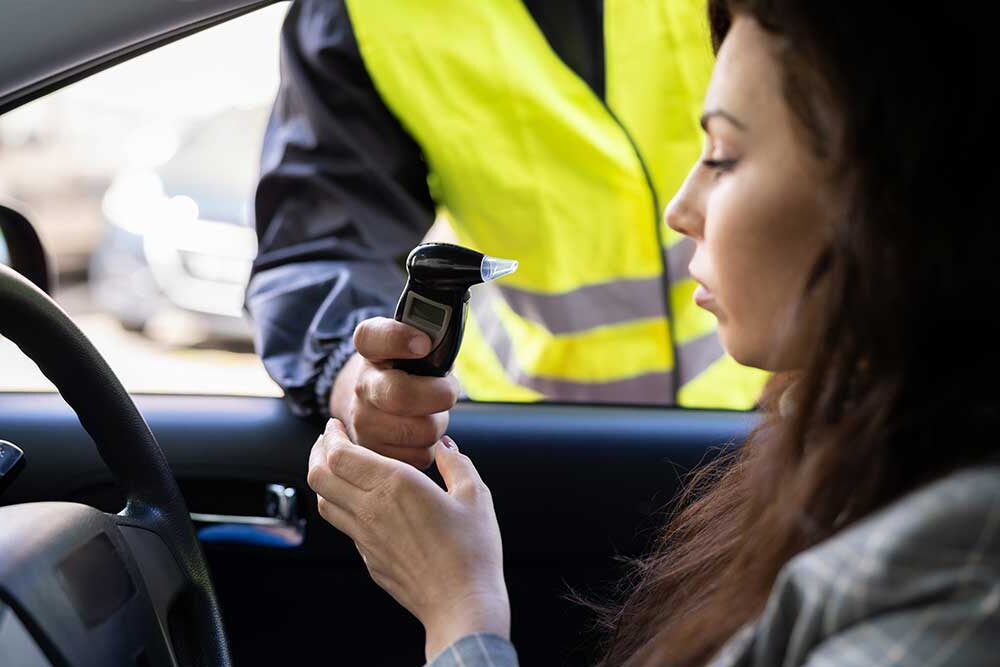Breathe Easy: How to Handle RBT and Breathalyser Tests in NSW
Driving under the influence of alcohol is a serious offence with potentially severe consequences. If you face the prospect of or have been charged with a criminal law offence in New South Wales (NSW), specifically related to Random Breath Testing (RBT) and breathalyser tests, it’s important to understand your rights and options.
In this blog, we will provide you with essential legal information and highlight the expertise of Repute Law, one of Australia’s leading criminal law firms, in handling such cases. By the end, you’ll have a clearer understanding of how to navigate these situations and why Repute Law is your best choice for legal representation.
Breathalyser Tests
In NSW, Random Breath Testing (RBT) and breathalyser tests play a vital role in upholding road safety and discouraging drivers from operating vehicles while under the influence of alcohol. If you are charged with a related offence, you may have grounds to present a defence.
Schedule 3 of the Roads Transport Act 2013 specifies that a “breath analysis” is a test conducted by a breath analysing instrument. The purpose is to determine the concentration of alcohol in a person’s breath or blood by analysing their breath.
In addition, it goes on to state that a “breath test” refers to a specific type of test conducted on an individual’s breath or blood to determine the level of alcohol concentration. This test is performed using a device that is not a breath analysing instrument but rather something that has been approved for this purpose.
Understanding RBT Procedures
Random Breath Testing grants police officers the authority to conduct breath tests on drivers without requiring reasonable suspicion of intoxication. However, under Schedule 3, s3 of the Road Transport Act 2013, an officer can request a breath test if they have reasonable cause to believe that the driver through observation:
- Is or was driving a motor vehicle on a road;
- Is or was in the driver’s seat on a road and was attempting to put the vehicle into motion;
- Is or was in the passenger seat whilst there was a learner driver in the driver’s seat and they are or were driving on a road.
As a driver, you must comply with this procedure, as refusal under the Act to undergo the test can lead to significant penalties, including a $1,100 fine.
However, if you believe the RBT procedure was conducted improperly or if your rights were violated during the process, you should consult with a legal expert from Repute Law immediately. It should be noted that there is no power to request a RBT if it has been more than 2 hours since you drove or you are on your own property (home safe rule)
Breathalyser Accuracy and Defences
The accuracy of breathalyser tests can be disputed based on various factors, including the police obtaining the analysis in an illegal way, potential errors in the calibration of the breathalyser device, non-compliance with correct testing procedures by the operator, or there could be medical conditions that affect the test’s accuracy. Therefore, if concerns are raised about the validity of the test, and these are substantiated, the evidence can be deemed inadmissible in Court (s138 Evidence Act (NSW). An experienced legal team can examine the circumstances surrounding your test to determine if any defences are available to challenge the results.
If it can be proven that the machine used in your case was improperly maintained, it may also cast doubt on the reliability of the test results.
Mandatory Interlock Program
If you are convicted of a serious drink driving offence in NSW, you may be required to participate in the Mandatory Alcohol Interlock Program for a specific period. This involves the installation of an alcohol interlock device in your designated driving vehicle, which measures your breath alcohol concentration.
The purpose of the alcohol interlock device is to ensure the registered vehicle records a blood alcohol level of zero whenever the individual turns the ignition. The results are documented if the reading is above zero, and authorities can access this information. You may face additional charges if found to be over the legal limit. It is against the law to drive any other vehicle during the period that the interlock order is in place.
Repute Law can provide expert guidance on navigating the legalities of this program, exemptions and any associated penalties for not complying.
Repute Law: Your Trusted Legal Experts
For matters related to RBT and breathalyser tests, you need a legal team that understands the intricacies of the NSW legal system. Repute Law stands out as one of Australia’s premier criminal law firms, with a team of Senior Criminal Defence Lawyers who exclusively handle court appearances. Our lawyers have extensive experience defending clients against RBT related charges, and we pride ourselves on providing exceptional client service.
At Repute Law, each client is assigned a Senior Criminal Defence Lawyer and a dedicated Case Concierge®, who is also a qualified lawyer. This ensures you receive personalised attention, comprehensive advice and the best possible outcome for your case. We will make sure you are Court Ready®. This unique process goes beyond just preparation, providing you with the necessary guidance on Courtroom etiquette, how to address the Court, what to wear and more.
Conclusion
With a commitment to exceptional client service, personalised attention, and a track record of success, Repute Law is your best ally in navigating the complexities of the legal system.
By engaging Repute Law at the earliest opportunity, our Senior Criminal Defence Lawyers can promptly gather evidence, interview witnesses and prepare the best possible defence. Our team will negotiate with the police, aiming to minimise reputational loss by seeking to have the charges reduced or even dismissed without going to Court. Early representation could mean the difference between a conviction and an acquittal.
For professional legal assistance you can rely on, don’t hesitate to contact Repute Law today.

